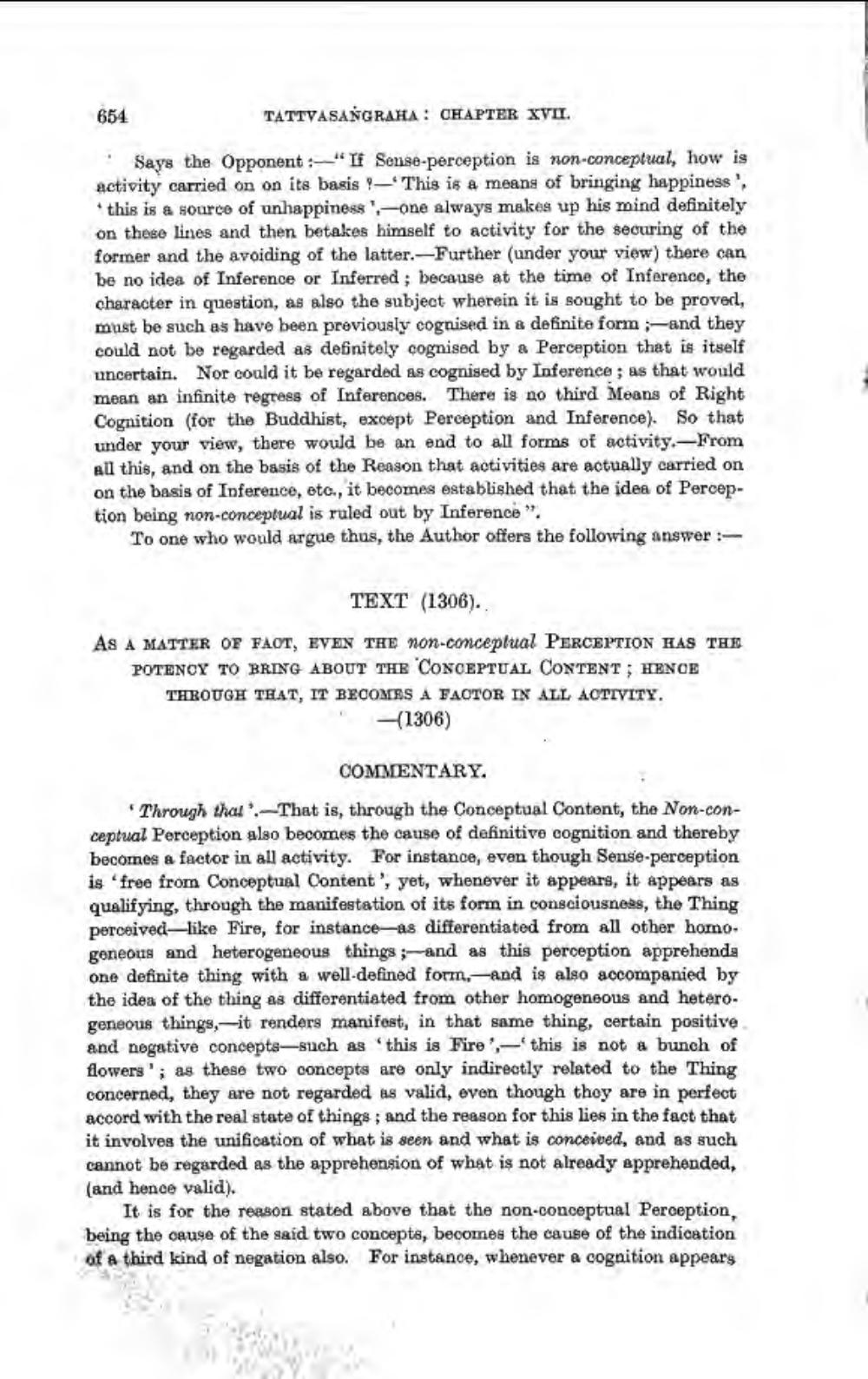________________
654
TATTVASANGRAHA: CHAPTER XVIL
Says the Opponent:"If Sense-perception is non-conceptual, how is activity carried on on its basis - This is a means of bringing happiness
this is a source of unhappiness, one always makes up his mind definitely on these lines and then betakes himself to activity for the securing of the former and the avoiding of the latter.-Further (under your view) there can be no idea of Inference or Inferred; because at the time of Inference, the character in question, as also the subject wherein it is sought to be proved, must be such as have been previously cognised in a definite form and they could not be regarded as definitely cognised by a Perception that is itself uncertain. Nor could it be regarded as cognised by Inference; as that would mean an infinite regress of Inferences. There is no third Means of Right Cognition (for the Buddhist, except Perception and Inference). So that under your view, there would be an end to all forms of activity.-From all this, and on the basis of the Reason that activities are actually carried on on the basis of Inference, etc., it becomes established that the idea of Perception being non-conceptual is ruled out by Inference
To one who would argue thus, the Author offers the following answer :
TEXT (1306).
AS A MATTER OF FAOT, EVEN TRE non-conceptual PERCEPTION HAS THE POTENCY TO BRING ABOUT THE CONCEPTUAL CONTENT ; HENCE THROUGH THAT, IT BECOMES A FACTOR IN ALL ACTIVITY.
(1306)
COMMENTARY
Through thal'.-That is, through the Conceptual Content, the Non-conceptual Perception also becomes the cause of definitive cognition and thereby becoines a factor in all activity. For instance, even though Sense-perception is free from Conceptual Content', yet, whenever it appears, it appears as qualifying, through the manifestation of its form in consciousness, the Thing perceived-like Fire, for instance-as differentiated from all other homo. geneous and heterogeneous things ;-and as this perception apprehende one definite thing with a well-defined form, and is also accompanied by the idea of the thing as differentiated from other homogeneous and heterogeneous things,-it renders manifest, in that same thing, certain positive and negative concepts-such as this is Fire', this is not a bunch of flowers'; as these two concepts are only indirectly related to the Thing concerned, they are not regarded as valid, even though thoy are in perfect accord with the real state of things; and the reason for this lies in the fact that it involves the unification of what is seen and what is conceived, and as such cannot be regarded as the apprehension of what is not already apprehended, (and hence valid),
It is for the reason stated above that the non-conceptual Perception, being the cause of the said two concepts, becomes the cause of the indication of a third kind of negation also. For instance, whenever a cognition appears




